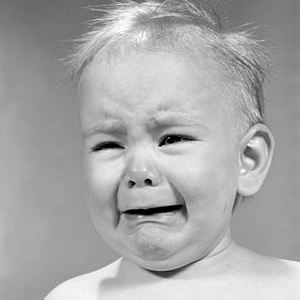Or is it?
Access Hospital Dayton is a for-profit facility, opening where a state hospital (Twin Valley Behavioral Health Center, or TVBH) used to be, until it closed in 2008. It is run by a private company, owned by two psychiatrists. It will have 28 beds initially, and the director hopes to expand to over 100 when it's all said and done. I can't find a website for it (which doesn't mean it doesn't exist, but it's not obvious), and all the information I'm getting is coming from the DDN and from the Dayton Business Journal.
The facility will not take anyone on Medicare or Medicaid; it will only take patients with private insurance that will cover the costs, or patients who are willing to pay for the care themselves. It sounds like, from the Dayton Business Journal article, the owner plans to expand to accept Medicare and Medicaid, but that's a future plan.
[Side note: In my opinion, 28 beds sounds pretty paltry, so I tried to do a comparison. I looked up the Linder Center of Hope, a facility down in Mason, Ohio, that I visited (ha, sounds so pleasant) this spring. It has 48 acute inpatient rooms for adolescents through adults, and has capacity for 16 people to stay long-term in their Sibcy House. They also have various outpatient programs. And they take Medicare and Medicaid.]
Maybe this is good news for Dayton. We need mental health care, and that's 28 beds that Dayton didn't have before, right? Well, at least since 2008, when the TVBH closed down.
And that's where things get a little more grim. TWBH was a state hospital, and had an over 100 bed capacity. They were a state hospital, so they took Medicare and Medicaid.
What's also significant is that over half of their patients at the time of their closure were forensic patients -- that is, people who were in some phase of the criminal justice system. Now, those patients will either be transferred for care out of the area -- if care can be found -- or shuffled back through the criminal justice system. Or, worse yet, released without treatment back into society, sure to end up back in front of a judge at some point. (Statistics come from an articled called "Reopening of Mental Hospital Won't Help Uninsured Patients" from the Dayton Daily News -- may not be available when you click on it).
According to the National Alliance on Mental Health, "64 percent of local jail inmates, 56 percent of state prisoners and 45 percent of federal prisoners have symptoms of serious mental illnesses" (From "Department of Justice Study: Mental Illness of Prison Inmates Worse than Past Estimates").
It's been proven, then, that there is a high percentage of mentally ill inmates, and it's no secret that Dayton's crime rate is pretty bad. From neighborhoodscout.com:
- Dayton's "Crime Index," with 100 being the safest, is 5 -- this means that Dayton is safer than 5% of the cities in the country
- An individual's chance of being a victim of violent crime in Dayton is 1 in 98; in Ohio it is 1 in 287
- The murder rate per 1000 people is .21; the national average is .05
- Note: all these stats are from neighborhoodscout.com: click here to see how they got them)
Is there a correlation here? I have to think there is.
So, hip hip hooray that a new mental health facility is opening in town. Obviously, Dayton (and the country in general) needs all the help it can get. But, contrary to their name ("Access Hospital"), this facility won't serve the segments of the population most in need.
I guess we still have a ways to go in mental health care for the area, and the country.







